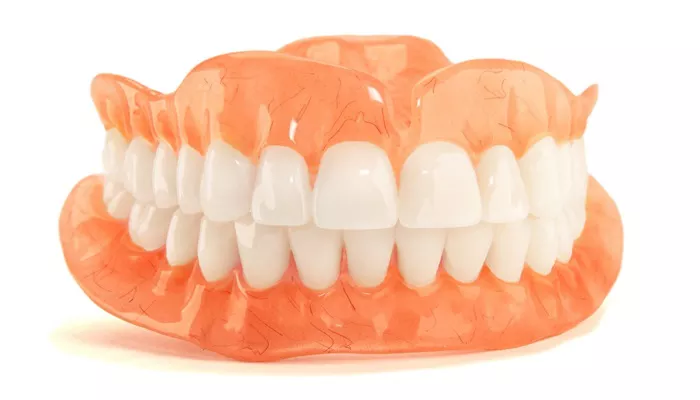Dentures are a common solution for people who have lost their natural teeth. They can restore function and improve appearance. However, many denture wearers wonder whether they should wear their dentures at night. In this article, we will explore the reasons why it is important to take out your dentures at night and the benefits of doing so.
Understanding Dentures
1. What Are Dentures?
Dentures are removable dental appliances that replace missing teeth. They can be made of various materials, including acrylic resin and metal. There are two main types of dentures:
Complete Dentures: These replace all the teeth in the upper or lower jaw.
Partial Dentures: These are used when some natural teeth remain, filling in the gaps left by missing teeth.
2. How Do Dentures Work?
Dentures rely on the gums and underlying bone for support. They create a seal with the soft tissues in the mouth, which helps keep them in place. However, wearing dentures continuously, especially at night, can lead to various issues.
Reasons to Remove Dentures at Night
1. Allowing Gums to Rest
One of the primary reasons to take out your dentures at night is to allow your gums to rest. Wearing dentures for extended periods can put pressure on the gums and underlying bone. This can lead to discomfort and soreness.
Pressure Relief: By removing dentures at night, you give your gums a break from the constant pressure. This can help reduce inflammation and promote healing.
2. Preventing Oral Health Issues
Wearing dentures overnight can increase the risk of oral health problems. Bacteria and plaque can build up on dentures, leading to infections and other issues.
Bacterial Growth: When dentures are worn continuously, bacteria can thrive in the warm, moist environment of the mouth. This can lead to conditions such as denture stomatitis, a fungal infection that causes redness and swelling in the mouth.
3. Reducing the Risk of Gum Disease
Gum disease is a significant concern for denture wearers. Wearing dentures at night can contribute to gum disease by trapping food particles and bacteria against the gums.
Proper Cleaning: Removing dentures at night allows for proper cleaning and care. This helps reduce the risk of gum disease and other oral health issues.
4. Maintaining Proper Fit
Over time, the shape of your mouth can change due to bone resorption (loss of bone density) after tooth loss. Wearing dentures continuously can exacerbate this issue, leading to a poor fit.
Fit Adjustments: By taking out your dentures at night, you can help maintain their fit. This can prevent discomfort and ensure they function correctly when you put them back in during the day.
5. Improving Comfort
Many denture wearers experience discomfort when wearing their dentures for long periods. Taking them out at night can improve comfort and promote better sleep.
Sleep Quality: Removing dentures allows your mouth to relax, which can improve your overall sleep quality. A comfortable mouth can lead to a more restful night.
Tips for Caring for Your Dentures at Night
1. Clean Your Dentures
Before storing your dentures for the night, it is essential to clean them properly. This helps remove food particles and bacteria that can cause oral health issues.
Cleaning Routine: Use a soft brush and a non-abrasive cleaner specifically designed for dentures. Avoid regular toothpaste, as it can be too abrasive and damage the denture material.
2. Store Dentures Properly
When you take your dentures out at night, it is important to store them properly. This helps maintain their shape and prevents damage.
Storage Solutions: Place your dentures in a clean container filled with water or a denture-cleaning solution. This helps keep them moist and prevents them from drying out.
3. Rinse Your Mouth
After removing your dentures, rinse your mouth with water. This helps remove any food particles and bacteria that may have accumulated during the day.
Oral Hygiene: If you have natural teeth remaining, brush them thoroughly before bed. This helps maintain overall oral health.
4. Follow Your Dentist’s Recommendations
Your dentist will provide specific instructions regarding your denture care. It is essential to follow these recommendations to ensure optimal oral health.
Regular Check-Ups: Schedule regular dental check-ups to monitor your oral health and the fit of your dentures. Your dentist can make adjustments as needed.
When to Consult a Dentist
If you experience any issues with your dentures or oral health, it is important to consult your dentist. Here are some signs that you should seek professional help:
Persistent Discomfort: If you feel pain or discomfort while wearing your dentures, it may indicate an issue that needs to be addressed.
Loose Fit: If your dentures feel loose or unstable, consult your dentist for adjustments.
Oral Health Changes: If you notice any changes in your oral health, such as sores, swelling, or persistent bad breath, seek dental advice.
Conclusion
Taking out your dentures at night is essential for maintaining oral health and comfort. Allowing your gums to rest, preventing oral health issues, maintaining proper fit, and improving sleep quality are all important reasons to remove dentures before bedtime.
By following a proper care routine, including cleaning and storing your dentures correctly, you can help ensure their longevity and your overall oral health. If you have any concerns about your dentures or oral health, do not hesitate to consult your dentist. With the right care and attention, you can enjoy the benefits of dentures while maintaining a healthy mouth.
Related topics:

